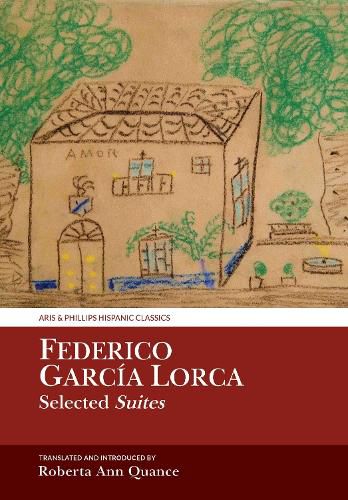Readings Newsletter
Become a Readings Member to make your shopping experience even easier.
Sign in or sign up for free!
You’re not far away from qualifying for FREE standard shipping within Australia
You’ve qualified for FREE standard shipping within Australia
The cart is loading…






This volume offers a fresh translation of a generous selection of Lorca’s suites, a body of work that Federico Garcia Lorca left largely unpublished upon his death in 1936. Composed between 1920 to 1923, these poems are closest in spirit and technique to Lorca’s Songs (1927) and his Poem of the Deep Song (1931). In 1926 the poet suggested they could be released together to form a ‘boxed set’, yet this plan, like other earlier efforts, fell through. Lorca’s suites reveal a poet who is interested in creating a modern style founded on popular oral lyric and fragmented narrative. But they also show a poet who explores his heart and his sexual orientation, and who may have hesitated too long about publication. Lorca achieved the fullest expression of a personal yearning in his long poem In the Garden of the Lunar Grapefruits. Out of an impossible contradiction between self-discovery and wariness of disclosure rises the blue world of the ideal-a timeless world that all readers of Lorca will want to take into account, inasmuch as it forms a counterpoint to the rest of his work.
$9.00 standard shipping within Australia
FREE standard shipping within Australia for orders over $100.00
Express & International shipping calculated at checkout
This volume offers a fresh translation of a generous selection of Lorca’s suites, a body of work that Federico Garcia Lorca left largely unpublished upon his death in 1936. Composed between 1920 to 1923, these poems are closest in spirit and technique to Lorca’s Songs (1927) and his Poem of the Deep Song (1931). In 1926 the poet suggested they could be released together to form a ‘boxed set’, yet this plan, like other earlier efforts, fell through. Lorca’s suites reveal a poet who is interested in creating a modern style founded on popular oral lyric and fragmented narrative. But they also show a poet who explores his heart and his sexual orientation, and who may have hesitated too long about publication. Lorca achieved the fullest expression of a personal yearning in his long poem In the Garden of the Lunar Grapefruits. Out of an impossible contradiction between self-discovery and wariness of disclosure rises the blue world of the ideal-a timeless world that all readers of Lorca will want to take into account, inasmuch as it forms a counterpoint to the rest of his work.